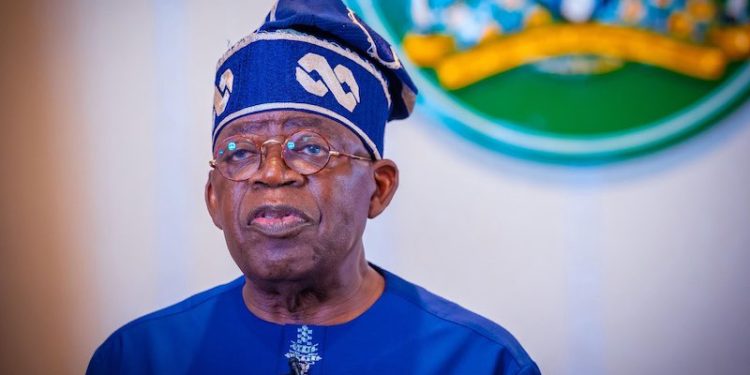Presidency clarifies Tinubu’s sack of service chiefs, saying it aims to inject new direction into the military, not a reaction to coup rumours.
The Presidency has finally addressed the reasons behind President Bola Ahmed Tinubu’s decision to sack and replace Nigeria’s service chiefs, clarifying that the move was not connected to the recent rumours of a coup plot.
According to the Special Adviser to the President on Information and Strategy, Bayo Onanuga, the changes were part of the President’s strategic effort to “inject new direction and energy” into the nation’s armed forces.
“Service chiefs can be hired and fired by the President. He is the Commander-in-Chief and has the constitutional authority to make such changes,” Onanuga told Saturday PUNCH.
On Friday, Tinubu announced sweeping reforms in the military leadership. The statement, issued by his Special Adviser on Media and Public Communication, Sunday Dare, revealed that General Olufemi Oluyede is now the Chief of Defence Staff, succeeding General Christopher Musa.
Other appointments include Major-General W. Shaibu as Chief of Army Staff, Air Vice Marshal S.K. Aneke as Chief of Air Staff, and Rear Admiral I. Abbas as Chief of Naval Staff. The Chief of Defence Intelligence, Major-General E.A.P. Undiendeye, retained his position.
The President directed the new service chiefs to justify the trust placed in them by enhancing professionalism, unity, and vigilance within the Nigerian Armed Forces.
These appointments take immediate effect.
Coup Rumour Dismissed
The changes came days after an online publication by Sahara Reporters claimed that several officers were plotting to overthrow the President — a report that went viral and linked the detention of 16 military officers to an alleged coup.
The Defence Headquarters, however, swiftly debunked the report through a statement by its spokesman, Brigadier General Tukur Gusau, describing it as “false and mischievous.” Gusau explained that the detained officers were being investigated for issues of indiscipline, not a coup plot, and that the cancellation of the Independence Day parade was merely an administrative decision.
He reaffirmed that the armed forces remained loyal to the Nigerian Constitution and to President Tinubu.
Presidency: Tinubu Exercised His Lawful Powers
Speaking further, the Senior Special Assistant to the President on Media and Publicity, Tope Ajayi, explained that the reshuffle followed two years of sustained operations by the former service chiefs and reflected Tinubu’s intent to introduce new vigor and vision into the military structure.
“This is not a reaction to any rumour of a coup. The service chiefs had completed two years in office, and the President simply exercised his constitutional power to bring in fresh leadership,” Ajayi said.
He noted that Nigeria continues to face serious security challenges, including Boko Haram insurgency in the North-East, banditry in the North-West, IPOB and ESN activities in the South-East, kidnapping in the South-West, and various crises in the North-Central.
Ajayi further disclosed that President Tinubu intends to reduce the country’s heavy dependence on defence expenditure, which has consumed the largest portion of the national budget for over a decade.
“The President wants to address security issues decisively so that funds allocated to defence can be redirected toward infrastructure — such as roads, power, education, healthcare, and broadband expansion,” he said.
He stressed that every government appointee serves at the pleasure of the President, except for the President and Vice President, who have constitutionally guaranteed tenures.
Public Speculation Persists
Despite the Presidency’s explanations, public debate continues over the timing of the reshuffle, with many still linking the military shake-up to the alleged coup report. However, government officials maintain that the move is purely administrative and aimed at strengthening Nigeria’s security architecture.


